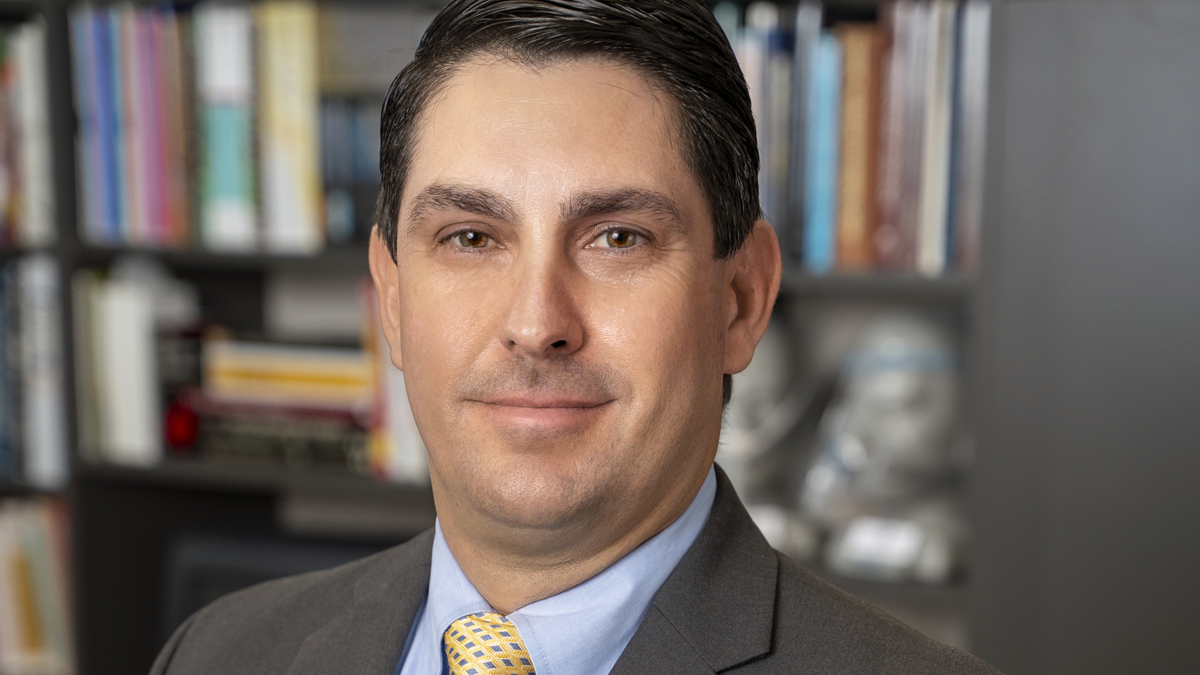Dr. Orlin Sergev loves the science of figuring out how to help his patients feel better. Their most common complaint before ending up at Equilibrium Endocrinology & Diabetes Center is that they don’t “feel right.” To address that concern, Dr. Sergev studies the whole person.
He uses diagnostic metrics, of course, to provide concrete numbers, but he also knows that most endocrine conditions impact the whole body, not just one organ. Endocrinology is an area of medicine that deals with the diagnosis and treatment of the diseases of the endocrine system, which contains glands producing hormones. We often think of hormones in terms of estrogen and testosterone, which regulate sexual development and reproduction, but hormones also control growth and maturation, movement, respiration, circulation, sensory perception and metabolism.

Dr. Sergev likened the endocrine system to the IT hub of the body, explaining that “Hormones are infinite amounts of messengers shuffling between all cells, organs and systems to make sure our bodies function perfectly. Even slight changes in this highly complex structure can have widespread effects on the body.”
Diabetes is a chronic condition that affects the way the body processes blood sugar. It can have a genetic component but generally starts when insulin resistance occurs (Type 2 Diabetes). This means that the cells are unable to use insulin properly, spurring the pancreas to create more. Eventually the pancreas cannot make enough insulin (a process that unfolds rapidly in Type 1 Diabetes) to keep proper levels, leading to increasing blood sugar levels (pre-diabetes to diabetes).
“Diabetes, the most common form of it, does not start yesterday or two weeks ago,” Dr. Sergev said. “It starts years, even decades, ago and very quietly.”
Other factors come into play, such as eating too many simple carbohydrates, which can cause weight gain. Lack of physical activity adds to the load. Certain ethnicities are more prone to diabetes. And getting older just complicates things more. So now a disease that has been years in developing begins to affect other parts of the body – heart, brain, kidney, eyes, ears and teeth.
Although diabetes is the most common endocrine disorder, there are many others. Hypothyroidism and hyperthyroidism occur when the thyroid does not produce enough or produces excessive amounts of hormones to support the body’s needs. Again, this has widespread effects. Other endocrine conditions, affecting all organs and systems, are bone and mineral diseases (including osteoporosis), adrenal diseases, hypogonadism, menopause, hypothalmic and pituitary disorders, parathyroid diseases, disturbances of water and electrolyte balance and endocrine hypertension.
Dr. Sergev believes we can have a better quality of life even into our senior years by having a balanced lifestyle leading to emotional and physical health.
“Staying active is number one, two and three,” he said, adding that it is essential to log at least three hours of exercise a week.
He urges everyone to avoid “fake food,” including sodas and any other sweetened drinks, and to shop the fresh food section of the grocery store. He advises “appropriate calorie restriction,” eating enough to sustain the body without adding weight. Refined sugar is not an essential nutrient.
Many patients who come to Equilibrium Endocrinology & Diabetes Center do so because they don’t feel right. And while some common endocrine-related conditions can be easily diagnosed, an endocrinologist who is trained in the science of hormones can offer the special knowledge needed to help patients fine-tune their “IT system” so it runs smoothly and effectively.
Learn more about Equilibrium Endocrinology & Diabetes Center at www.endocrinology4u.com. To make an appointment, call 843-871-7979 or 843-873-2600.






